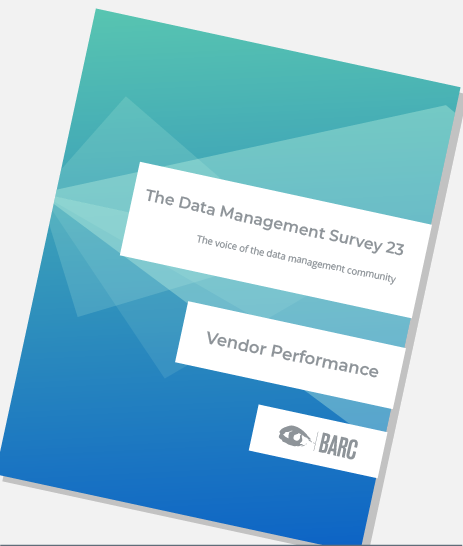Collibra Data Intelligence Cloud
Founded in 2008 as a spin-off of Vrije University, Brussels, Collibra’s headquarters today are in Brussels and New York City. The company is one of the big players in the data governance market. With around 1,300 employees, 12 offices worldwide and operations in 25 countries, Collibra has good geographical coverage. Its 650+ customers come from a wide variety of industries and the software is used in multiple verticals including financial services, retail, healthcare and manufacturing.
Collibra’s partner program includes implementation, technology, cloud and channel partners. The vendor also provides educational services (Collibra University, training and certification program) and coaching. The vendor seeks to continuously enhance its partner program and tools for partners, as well as provide more training content via Collibra University with the purpose of educating customers in data intelligence.
The platform’s focus is to provide a data system of engagement that supports different types of users to work with data as easily as possible by providing a unified view of all enterprise-relevant data assets.
To this end, Collibra offers a market-leading tool for data governance and is used successfully, especially in large scenarios with hundreds of users and complex data landscapes. The Data Intelligence Cloud platform includes functions for data governance and data cataloging, data lineage and data privacy as well as an optional, second product for data quality and observability.
Both products can be licensed separately, are very tightly integrated with each other and use common core services such as integrations, API and reporting functionality. More than 500 customers currently use Collibra Data Intelligence Cloud and over 100 are using the Collibra Data Quality & Observability platform.
The focus of this report is on Data intelligence Cloud, which is a pure SaaS service, delivered either via GCP or AWS. An edge component delivers the information to the underlying graph database in the cloud. The component is installed locally at the customer’s site and takes care of metadata extraction and enrichment as well as optional sample delivery. The tool supports the complete process from metadata integration to analysis and evaluation of metadata for different use cases with automation and AI (e.g., to support metadata categorization, linking and more).
The tool is mainly geared to serve the business users and data stewards leveraging business and technical metadata. The company’s origins and expertise in data governance still stand out, for example, in the form of comprehensive workflow and user management as well as policy management. However, the tool is evolving significantly. One goal is to support decentralized data and analytics structures, as propagated in the ‘data mesh’ concept. To this end, Collibra has incorporated three major innovations:
1. The Workflow Designer, which is currently available in public beta. With it, forms and processes can be visually designed and deployed relatively quickly and easily (e.g., a workflow for accessing a data product).
2. To support business users in their search for suitable data products, the Data Marketplace has recently become available. At its core, this is an optimized user interface that allows easy search and access to curated metadata objects. This is a first step to reduce the complexity of this powerful tool for less technical users.
3. Collibra Protect. This allows the code-free definition of data access policies in Collibra, which can then be transferred to connected systems, such as Google BigQuery, Snowflake or others. The supported systems are continuously expanded.
In addition to simplifications to usability, content customization options and further functional extensions and integrations, the roadmap for the next four quarters is also characterized by data quality push-downs. This refers to the ability to observe data quality and behavior in the connected systems, (e.g., to detect anomalies in databases or pipelines – a matter for the Data Quality & Observability module). Here, Collibra is trying to get closer to operational processes to generate benefits from trusted data.

User & Use Cases
Almost all of the companies surveyed use Collibra Data Intelligence Cloud as a data governance solution (95 percent), a further 81 percent for data cataloging and 71 percent use it for data stewardship / data quality management. It seems that Collibra is still used more for managing and governing data than to directly support analysts in exploring data for analytics. But this is changing. 43 percent now use it for data discovery and another 29 percent for self-service analytics. One in three companies are currently using Collibra technology to support new data approaches such as data intelligence and data mesh (e.g., by supporting federated governance or providing a self-service platform for data products).
Our analysis also shows that Collibra is typically deployed by companies looking to use the solution in large scenarios with an average of 800 users and 55 experts. These numbers are significantly higher than those of many of Collibra’s competitors. Above-average ratings in the Technical Foundation category of KPIs and a high reported frequency of usage (68 percent use it several times a day, and 32 percent use it several times a week) indicate that Collibra works well, even in very complex scenarios.
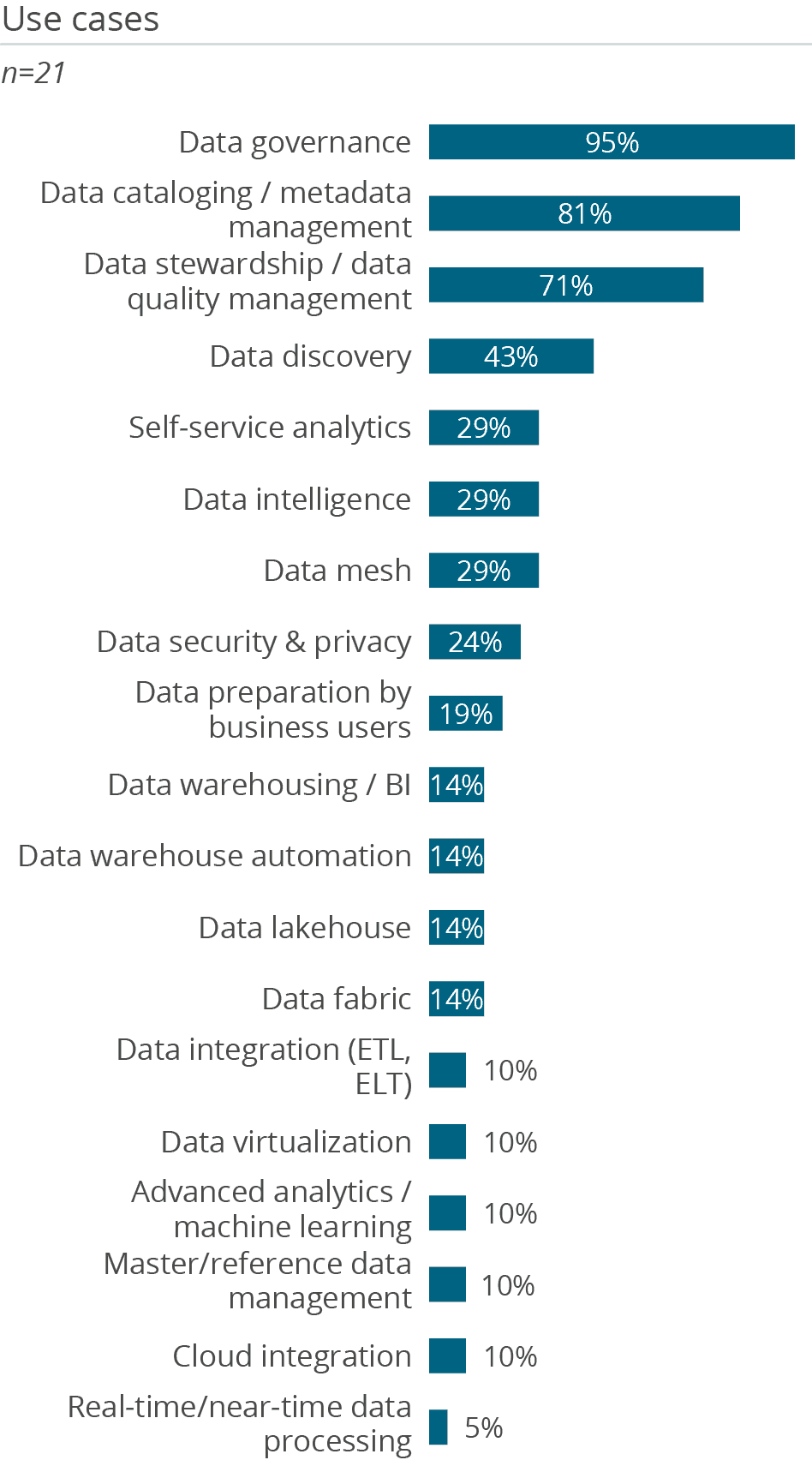

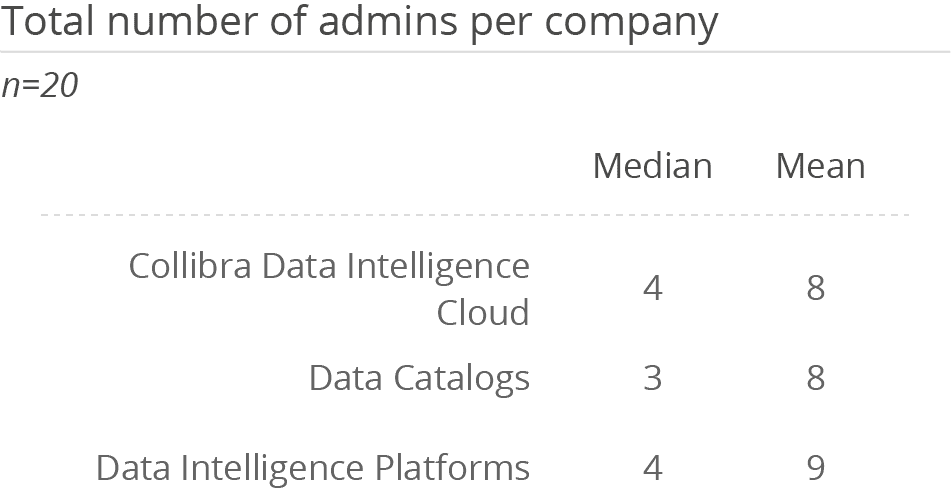
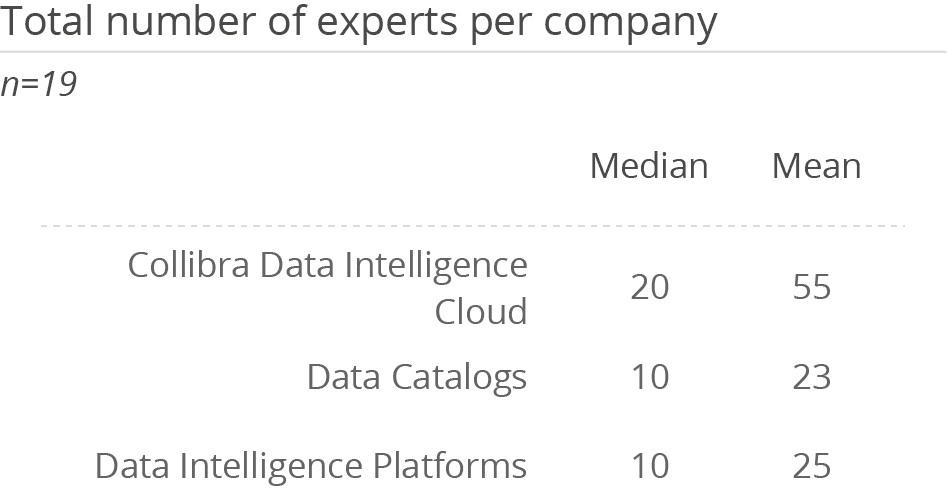
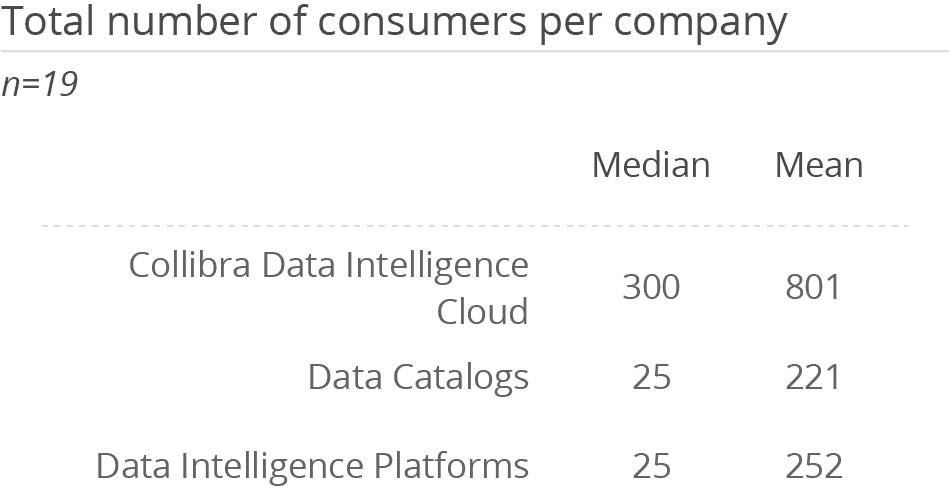
Want to see the whole picture?
BARC’s Vendor Performance Summary contains an overview of The Data Management Survey results based on feedback from Collibra Data Intelligence Cloud users, accompanied by expert analyst commentary.
Contact us to purchase the Vendor Performance Summary- Register for a free sample Vendor Performance Summary download
- If you have any questions, feel free to contact us
